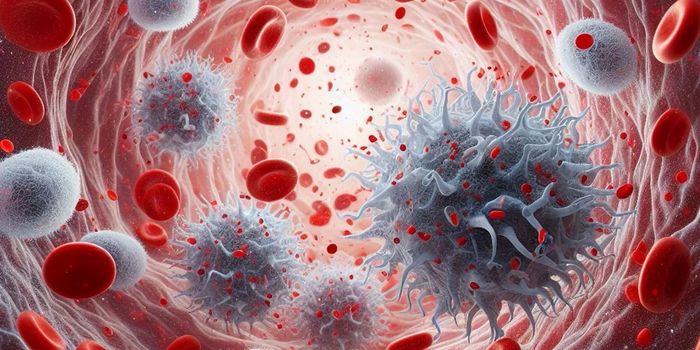Cannibal Cells Could Slow Cancer's Growth
Cannibalization is a gruesome process that can frequently happen at the cellular level in tumors. Scientists don’t know exactly what role cannibalization plays in tumor growth, but recent findings suggest the cannibalization is triggered by cell division. While it’s not clear whether this process speeds up or slows down tumor growth, the results may help biologists understand how to target the cancer.
The process of cell cannibalism is known as entosis. Essentially, one cell invades the cytoplasm of another living cell in a macabre “cell-eat-cell” fashion. The engulfed cell subsequently undergoes cell death. The process is not that typical for healthy cells, but happens more frequently in tumor cells. Scientists suspect entosis may be a mechanism driven by cellular competition, or it may be a way for cells to defend itself.
To better understand this process, scientists at the Babraham Institute, Cambridge, used time-lapse microscopy to film the human epithelial cells. Not coincidentally, more than 80 percent of human cancers involve epithelial cells.
"We set out to identify the proteins that control cell cannibalism in tumor cells, but by using time-lapse microscopy to watch this process in action, we stumbled across a completely unexpected new mechanism. The link we've found to cell division is really intriguing from the perspective of cancer,” said Dr. Jo Durgan, the study’s first author.
The team found that cannibalization seems to be triggered by cell division. Furthermore, the dividing cells are more likely to be cannibalized if they’ve detached from their biological substrate. Such results lead the authors to hypothesize that cell cannibalization could be slowing down cancer growth, as “normal epithelia may engulf and kill aberrantly dividing neighbors.”
"Entosis is a fascinating process that may play a role in normal physiology, as well as cancer. By studying entosis, we hope to gain insights into fundamental cell biology, as well as to explore intriguing new avenues for cancer research. After 100 years of observing 'cell-in-cell' structures, there is now an exciting push towards discoveries in both cell and cancer,” said Dr. Oliver Florey, the study’s senior author.
Additional source: Babraham Institute









